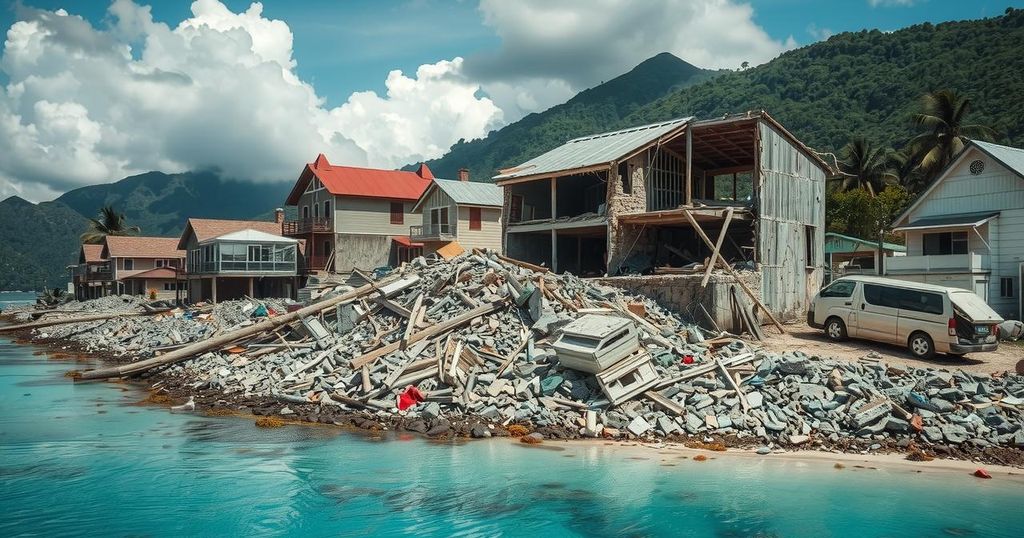January 12 has been marked by significant historical events. In 2010, a devastating earthquake in Haiti killed over 300,000 and left millions affected. The U.S. Congress authorized military action against Iraq in 1991, and a tragic stampede occurred during Hajj in Saudi Arabia in 2006. In 2021, the Indian Supreme Court stayed controversial farm laws amidst major protests, leading to their eventual repeal.
January 12 marks significant historical events over the years, including the catastrophic earthquake in Haiti in 2010, which resulted in over 300,000 fatalities. The day also recalls the U.S. Congress’ authorization of military action against Iraq in 1991 and the tragic stampede during the Hajj pilgrimage in Saudi Arabia in 2006. More recently, the Supreme Court of India intervened in 2021 to stay controversial farm laws amidst widespread protests from farmers. This article reflects on these pivotal occurrences and their lasting implications on global history.
The earthquake on January 12, 2010, was a devastating seismic event measuring 7.0 on the Richter scale, occurring just 25 kilometers southwest of Port-au-Prince, Haiti. The tragedy affected approximately three million people, displacing more than a million and leading to extensive destruction. Despite international relief efforts, Haiti has struggled to recover fully in the years following the disaster, highlighting the earthquake’s profound impact on the nation’s future.
On the same day in 1991, Congress voted to grant then-President George H.W. Bush the authority to use military force against Iraq, following Iraq’s invasion of Kuwait. This decision followed intense debate and culminated in a vote of 250 to 183 in favor of military action. The ensuing conflict, marked by a rapid military campaign, liberated Kuwait and significantly influenced U.S. foreign policy for years to come.
In 2006, during the Hajj pilgrimage in Saudi Arabia, over 300 pilgrims tragically lost their lives in a stampede, with thousands more injured. The incident occurred during the Mina stoning ritual, and despite safety measures, including designated walkways and substantial police presence, the event highlighted ongoing concerns regarding crowd control during religious gatherings.
Most recently, in January 2021, the Supreme Court of India issued a stay on three contentious farm laws that had sparked widespread protests among farmers, particularly in Punjab and Haryana. The court, led by Chief Justice S.A. Bobde, stated, ‘We are of the view that the constitution of a committee of experts in the field of agriculture to negotiate between the farmers’ bodies and the Government of India may create a congenial atmosphere and improve the trust and confidence of the farmers.’ This legal intervention underscored the importance of dialogue between the government and agricultural communities. The laws were ultimately repealed later that year after prolonged protests.
January 12 has witnessed several defining moments throughout history, each offering insight into social, political, and humanitarian challenges faced by different regions. The day encapsulated the devastating consequences of natural disasters, military conflicts, religious observances, and legislative actions. Understanding these events allows for a greater appreciation of their impact on both national and international stages, showing how history continues to shape present circumstances and future possibilities. From Haiti’s struggle for recovery after the earthquake to India’s agricultural reforms, the underscoring theme is one of resilience amidst adversity.
In conclusion, January 12 serves as a poignant reminder of humanity’s trials. The earthquake in Haiti continues to affect its citizens a decade later, and the U.S. military intervention in Iraq remains a significant point in contemporary history. The tragedy during the Hajj pilgrimage underscores the need for safety at major religious gatherings, while the Supreme Court’s intervention in India highlights the complexities surrounding agricultural laws. Each event reflects broader societal issues and calls for ongoing reflection and reform.
Original Source: www.firstpost.com






